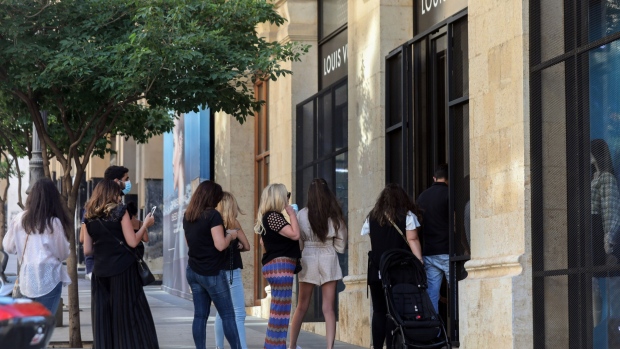Oct 15, 2020
Louis Vuitton's surprise growth Helps LVMH weather pandemic
, Bloomberg News

The owner of Louis Vuitton enjoyed an unexpected rebound in consumers’ appetite for dresses and monogram bags, buoying third-quarter sales.
Organic revenue at LVMH’s fashion and leather goods unit jumped 12 per cent in the third quarter as the world’s largest luxury company cited strong sales of items like Christian Dior’s US$3,000-and-up Bobby bags. Analysts expected a 0.9 per cent decline.
Some consumers are eager to splurge despite a dire economic backdrop. LVMH’s performance shows how its leading brands are helping it weather the pandemic’s destructive economic consequences after lockdowns and travel quarantines sent the luxury industry into a deep slump.
LVMH’s American depositary receipts gained 3.1 per cent, recovering from earlier declines.
The upbeat report by LVMH, the first of the major European luxury players to report quarterly results, bodes well for others in the sector, said Luca Solca, an analyst at Sanford C. Bernstein.
“We expect more players to follow this path -- most notably Hermes,” he said in a note.
LVMH stunned investors when it announced last month that it planned to pull out of a US$16 billion deal to buy Tiffany & Co. Earlier on Thursday, the U.S. jeweler unveiled positive sales trends in an effort to keep the deal on track.
LVMH’s divisions had sharply mixed results in the latest period, with the wines and spirits unit -- which houses Hennessy Cognac and Moet & Chandon Champagne -- also resisting better than expected. Organic revenue fell three per cent, less than half the decline analysts were expecting.
Sephora Unit
However, some businesses fared worse. LVMH’s selective retailing unit -- which includes DFS duty-free outlets and Sephora cosmetics store networks -- saw organic revenue slump 29 per cent amid a halt in international tourism.
With travel abroad nearly impossible, Chinese consumers who’ve driven the luxury industry’s growth are spending more at home. The Louis Vuitton brand returned to growth in China in the third quarter, Chief Financial Officer Jean-Jacques Guiony said on a call.
LVMH’s total revenue fell seven per cent on an organic basis, reaching 11.96 billion euros (US$14 billion). Analysts expected a 12 per cent drop.
The company, known for cautious projections, said it remains concerned about the economic outlook as the coronavirus spreads again in key markets including Europe. Still, it said it will maintain marketing spending and other measures aimed at boosting the value of its brands.
“Luxury consumption isn’t a proxy for global consumption,” Guiony said, cautioning that other sectors may not be similarly resilient.
The quarterly performance was driven largely by smart marketing at key brands such as Louis Vuitton and Dior, said Guillaume Gauville, an analyst at Credit Suisse.
“Investors should be careful in extrapolating this beat into other fashion brands,” he said in a note.





